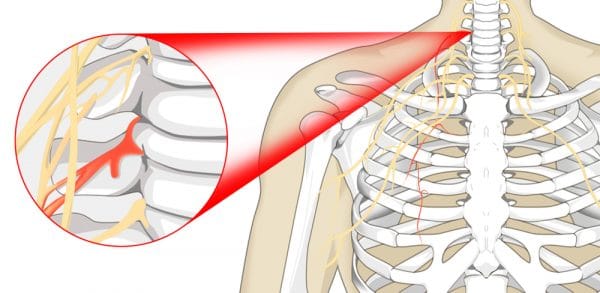
Nerves in your spinal cord and other body parts can be compressed by the surrounding tissues, causing numbness, tingling, and pain. Pinched nerves can sometimes be the main cause of your stiff neck, leg, back, or arm. Other indicators of pinched nerves include; stinging pain, muscle weakness, burning sensation, tingling, and numbness. These symptoms can worsen immediately after waking up or when lying down. Mild cases of pinched nerves can easily be treated by rest, time, and home remedies, while severe cases of pinched nerves usually require more advanced medical treatments such as surgery. If left untreated, pinched nerve symptoms tend to radiate to other parts of your body, causing more pain and discomfort, especially in your wrists, back, neck and elbows. In this post, we will look at the possible treatments for Roswell pinched nerve.
Enough rest
Enough sleep is very important for the healing of a damaged nerve. Your body naturally repairs itself while sleeping; thus, sleeping for more hours allows your pinched nerve symptoms to disappear more quickly.
Avoid strenuous movements
It is also advisable that you avoid overusing the damaged nerve by avoiding any movement that causes stress to the nerve. Your pinched nerve symptoms can be made worse by maintaining poor postures for a long period. You should use neck rests, well-cushioned seats, and adjustable chairs that may relieve pressure on your nerves and allow quick healing.
Stretching exercises
Gentle stretching exercises such as yoga may prove to be very effective in relieving pressure and tension from your damaged nerve. However, you should stop immediately if you notice any pain or discomfort while performing these exercises.
Medications
Your healthcare provider may also prescribe you anti-inflammatory non-steroidal medication to help manage your pinched nerve symptoms and reduce swelling around the affected area. If you decide to opt for over-the-counter medications, make sure to first consult with your physician.
Physical therapy
Physical therapy can also prove to be effective in relieving your pinched nerve symptoms. You could also try gentle tissue massages around the affected regions to help relieve any muscle stiffness. Your doctor may recommend you wear a splint on the affected site to allow quick healing. Splints are usually a standard treatment solution for pinched nerves in the wrists and hands. Additionally, people diagnosed with mild cases of pinched nerve find symptom relief by gently elevating their legs to avoid exerting pressure on their spinal cord.
Placing ice and heat packs
Placing ice and heat packs around the infected site for about fifteen minutes daily can help reduce inflammation and swelling. Alternating between ice and warm packs helps enhance blood circulation to the affected site and accelerates healing.
Lifestyle changes
Lastly, there are some lifestyle changes such as swimming, cycling, walking, and other low-impact exercises that help provide relief to your pinched nerve symptoms and keep you physically fit.
If your pinched nerve problem does not respond to at-home conservative treatments, you are advised to contact your healthcare provider. To help determine the immediate source of your pinched nerve problem, your doctor will perform various body imaging tests, such as X-rays, to check for muscle weakness in your shoulders, hands, neck, arms, and wrist. Surgical procedures are the last resort in treating pinched nerves. For instance, your doctor may recommend an artificial disc replacement, where the damaged disc is surgically removed and replaced with an artificial one.